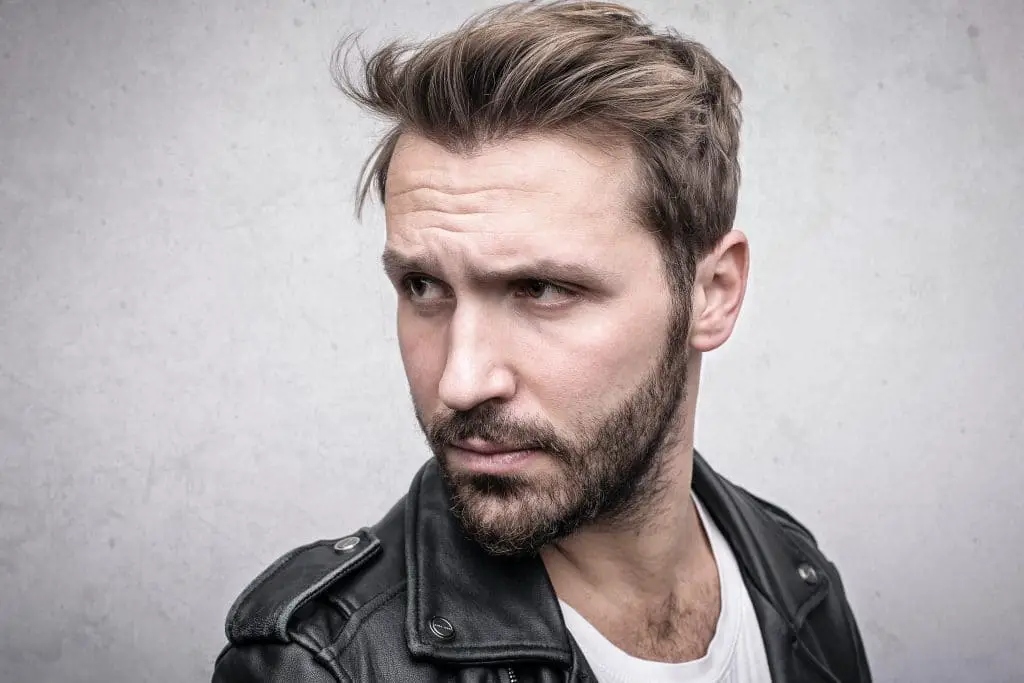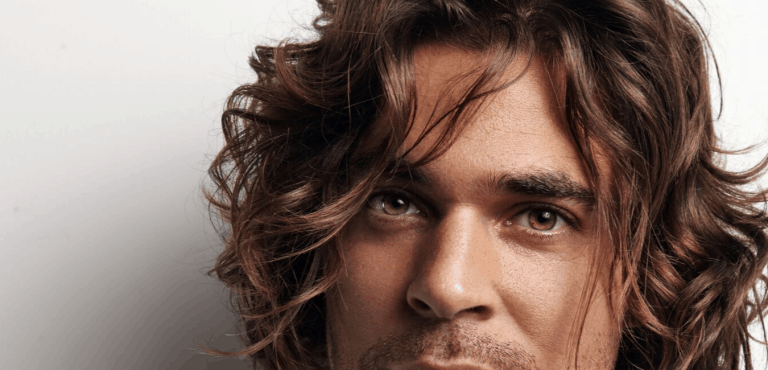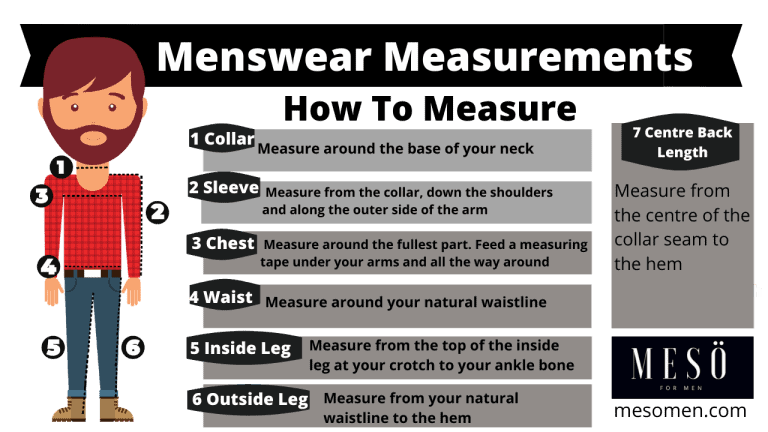Facts About Scalp Care
It seems like a universal conversation; men compare their curl, shine, thickness, length, and color to other guys.
What’s more, it seems we’re never happy with what we’ve got, always yearning for what the other guy looks like.
At Novuskin, they know that when it comes to skin and scalp care, the grass isn’t greener on the other side of the fence. It’s green where you water it!
So in this post, we will look at the facts about scalp care, so you can get it right.
In this case, that means, if you want hair you love, you need to take really great care of your scalp.
It’s true that no matter how much you care for your scalp, there are certain things about your hair you can’t change.
However, you can certainly love your natural hair more and find ways to manage it more easily.
For severe concerns with your scalp, we recommend you see a dermatologist who will run some tests and check for hormonal imbalances or issues with the endocrine system.
He or she may also do some allergy testing. Severe conditions include:
- Significant itching
- Bumps or sores on the scalp
- Concerning areas of hair loss
- Extreme oiliness
- Burning or significantly red scalp
- Extreme or unmanageable dandruff
If you have less-extreme concerns with your scalp or hair, doctors have recommended things that might help.
Here are 3 facts about scalp care you should know, recommended by real doctors and health practitioners.
1 Healthy Hair Comes from a Healthy Scalp
Walking down the drugstore shampoo aisle is a bit like being a kid in a very, very confusing candy store.
There are so many brands and scents to choose from!
We often select shampoo based on how we want our hair to look: fuller, straighter, more body, more wave, color protection, the list goes on and on.
If we take better care of our scalp, our hair will be healthier as well.
“People often believe if they wash their hair more or use more expensive shampoo, their hair will look better.
It’s a common misconception.
However, if you instead address biological factors below the scalp, you can begin to have hair that looks healthier and is more manageable.”
~ Michelle Tio-Nguyen, Nurse Practitioner

But where do you begin?
One way is to up your shampoo game and opt for products with more natural ingredients.
Guy Parsons, certified trichologist, told Harper’s Bazaar we should avoid products ending in ‘cones,’ such as silicones, dimethicones, trimethicones.
These ingredients can make your hair look moisturized and soft but are also heavy and can lay on your scalp, blocking the follicles and pores from performing correctly.
You can also look for products that are free from parabens and sulfates, two other follicle-blocking ingredients.
Why will this help?
The theory is that if you are correctly cleansing the hair and scalp, your pores will secrete a healthy amount of oil and that your follicles will help grow the best version of your natural hair.
Your hair should hang well, have your authentic wave or curl, and appear shiny and healthy without the need for added ingredients.
2 Dandruff Is Caused by an Oily or Dry Scalp
According to the Canadian Dermatology Association, dandruff isn’t dangerous.
But it can lead to embarrassment. While as many as 50% of us experience dandruff in our adult lives, we still don’t regard it as acceptable.
After all, there’s nothing sexy about flakes of scalp on our shoulders or stuck in strands of hair.
When our skin is flaking, no matter where on our body, we tend to assume the skin must be dry.
So, if you’re reaching for hair oil or ultra-moisturizing shampoo, you might be shocked to hear people who have an oily scalp can also experience dandruff.
Because of the dry air in Las Vegas, 89118, this can be a common issue, as dehydration can cause both dry and oily skin.
What we know for sure is that people with significant cases of dandruff due to oil production are regenerating skin cells on their scalp at a much higher rate than normal – up to 4 times as quickly!
This leads to thick patches of cells on the head that flake off.
This is often caused by an overpopulation of yeast that feed on the excess oil.
The yeast are part of our normal flora, so it can be difficult to control them, but dandruff shampoo may help, so that’s a good place to begin.
If a drugstore brand (like Head & Shoulders) doesn’t cut it, try something a little stronger, like T/Gel by Neutrogena or Nizoral.
These brands are very affordable and receive plenty of praise for their ability to help control flakes and itching.
Check out our guide on How to Get Rid Of Oily Skin Permanently
3 There’s a Right and a Wrong Way to Wash Your Scalp
First, let’s address the question on everyone’s mind: How often should I wash my hair?
While some argue everyday is far too much, dermatologists generally agree that we should wash our hair as often as we feel necessary.
This is primarily dependent on how much oil your scalp produces.
Dr. Zeichner, director of cosmetic and clinical research in dermatology at Mount Sinai Hospital in New York City told Prevention, “If you have oily hair, it is perfectly safe and appropriate to wash your hair daily.
If you have dry hair or a sensitive scalp, however, you certainly can space out hair washing as needed.”
However, Dr. Zeichner goes on to say it is possible to wash your hair too much.
If your scalp is particularly dry, over washing can strip the hair of any oil it does produce, leaving you with an irritated, dry scalp and dull hair.
So wash your hair as often as necessary to keep it free of dirt and excess oil.
Why Not Read Our Men’s Grooming Guide and Tips
Steps to Correct Hair Washing
Rajani Katta, MD, a board-certified dermatologist in Houston, says to be gentle with the scalp.
Always use your fingertips, not your fingernails, to avoid breaking your delicate skin.
Here are our recommended steps to properly washing your hair.
- Thoroughly wet your hair and scalp with mild to warm water.
- Use enough shampoo that the entire scalp is lathered.
- Apply the shampoo to the hair using your fingertips to massage it into the scalp. Unless you have used hair products like hair gel, Sea Salt Spray or hair spray, you may not need to wash the ends of your hair, so focus on your scalp, gently massaging with shampoo.
- Rinse well with warm water, then repeat. Many people don’t ‘lather, rinse, repeat,’ and it isn’t always necessary. But if your hair is particularly dirty or your shampoo didn’t lather well, a second wash may be in order.
- Apply a conditioner to the ends of your hair.
- If your hair tends to be oily, avoid applying the conditioner to your scalp and focus on the hair instead. Allow the conditioner to sit on the hair for at least a minute before rinsing.
- If you’re brave, consider rinsing with cool water. This will shock the pores and close them, protecting you against hair loss during the drying and styling process.
- Wrap your clean hair in a light, soft towel to remove the access water.
If you like using Men’s hair care products, check out Benefits of Sea Salt Spray and our Men’s Hair Product Guide.
Conclusion
Facts about scalp care are all over the internet, for everyone to read. However, here at Meso, we have tried to bring you the best unbiased facts about scalp care from the best Dermatologists and Scalp Care Doctors around the world.
Do you have any scalp care tips for our readers? If so, share them below and we promise to rely to every one.







